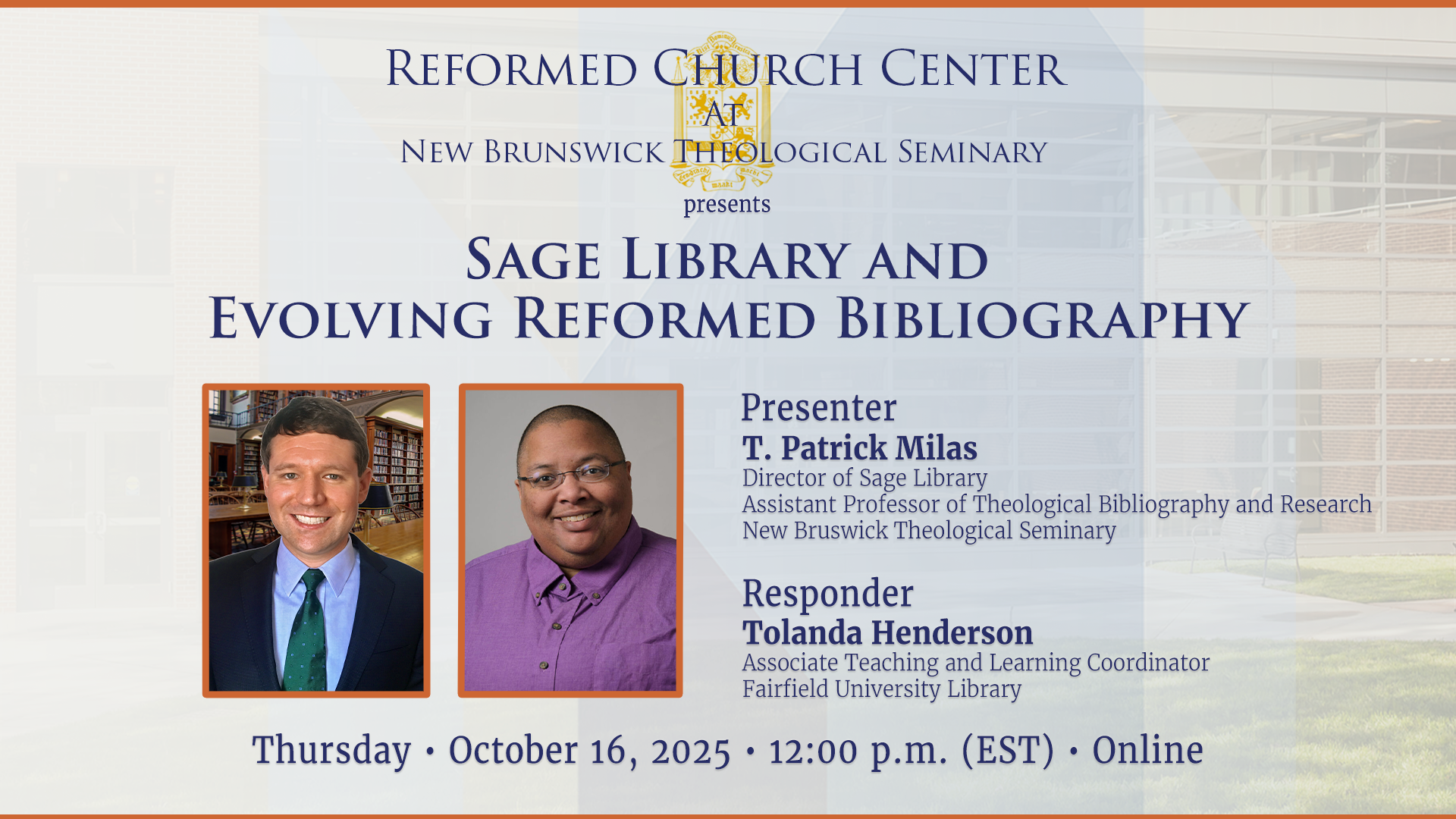
News

Sage Library and Evolving Reformed Bibliography
October 16 @ 12:00 pm - 1:30 pm
Event Navigation

Looking at 150 Years of Sage Library and the Changing Jobs of Libraries
In June of 1875, a new library was dedicated on New Brunswick Seminary’s campus, the gift of a wealthy church member from New York City named Gardner A. Sage. It was considered state-of-the-art construction for libraries of the day. Mr. Sage spent two years interviewing architects and investigating academic libraries in both eh United States and Europe before the cornerstone was laid in 1873. He also conceived of what John Coakley, in New Brunswick Theological Seminary: An Illustrated History, 1784-2014, called “a bold experiment.”
The essence of Gardner A. Sage’s vision was to assemble an ambitious collection of unrivaled excellence and at the same time to make it available to the wide public beyond the seminary community itself . . . the building would be “kept open daily (except Sundays and holidays . . .) from early morning till evening,” and its use is “to be extended to the whole Church and to the citizens of New Brunswick” (Coakley, 38).
While the vision, and many other things, have changed, Gardner A. Sage Library is still with us. Its history and the changing understanding of the role of libraries in theological education will be the subject of our next Reformed Church Center program, “Sage Library and Evolving Reformed Bibliography,” to be held online on Thursday, October 16, 12:00 noon to 1:30 pm Eastern Time.
The presentation will be given by T. Patrick Milas, director of Sage Library and Assistant Professor of Theological Bibliography and Research at NBTS. A graduate of Davidson College and Florida State University, he is active in the New York Theological Library Association, the Southeastern Pennsylvania Theological Library Association, and the American Theological Library Association, and is an active Episcopal layperson.
The response will be given by Tolanda Henderson, the Associate Teaching and Learning Coordinator in the library at Fairfield University and a PhD candidate in the English Department at the University of Connecticut. Mx. Henderson worked at Sage Library from 2006-2009 after earning a Master of Arts in Religious Studies from Chicago Theological Seminary and a Master of Library and Information Science from Dominican University.
This, like all Reformed Church Center programs, is free for all participants, but registration is required. Register at https://us06web.zoom.us/webinar/register/WN_ZfNpPVh1S_q-3fKCu3I4Kw.